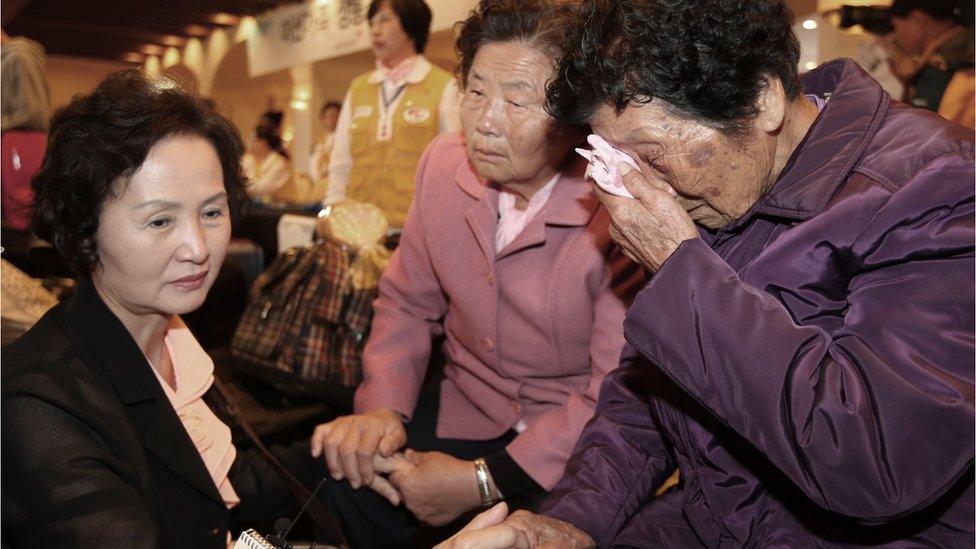Korean families divided by war reunite in the North
- Published
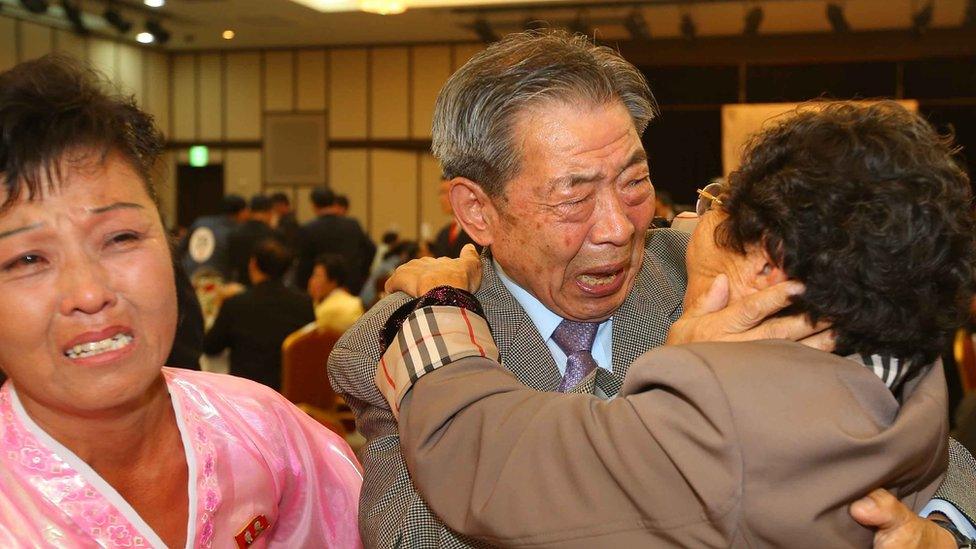
Some of those at the reunion saw family members for the first time in more than 50 years
Hundreds of South Koreans have begun meeting family members in the North in a rare reunion event for families separated by the Korean War.
The reunion, comprising a series of meetings over a week, is being held at a Mount Kumgang resort, at the border.
Thousands of families have been apart with little or no contact since the war ended in 1953.
Reunions have been held sporadically since 1988 and depend on the state of relations between the two countries.
The last reunion was held in February 2014.
This year's meeting comes after an agreement in August that de-escalated tensions sparked by a border explosion that injured South Korean soldiers.

Stephen Evans, BBC News, Seoul
Lee Taek-gu is 89 years old and he will meet his sister who is 20 years younger. He last saw her when she was a tiny girl and he a young man who got on a boat to flee south, thinking he would come back after the war.
Since then, he has been writing letters to his parents knowing he would never send them because there is no postal service between the two halves of Korea. He wrote them as therapy for his grief.
He told the BBC he would simply thank his sister for being alive. They would talk about their parents who are now dead. He has got his best jacket cleaned and spruced up for the occasion and bought a smart new hat.

The meetings, organised by the Red Cross, are hugely popular with tens of thousands signing up, but few on each side get chosen and they tend to be elderly.
In South Korea participants are picked at random by a computer which takes into account their age and family background.
They also have to sit for interviews and take medical examinations to determine if they are fit to travel.
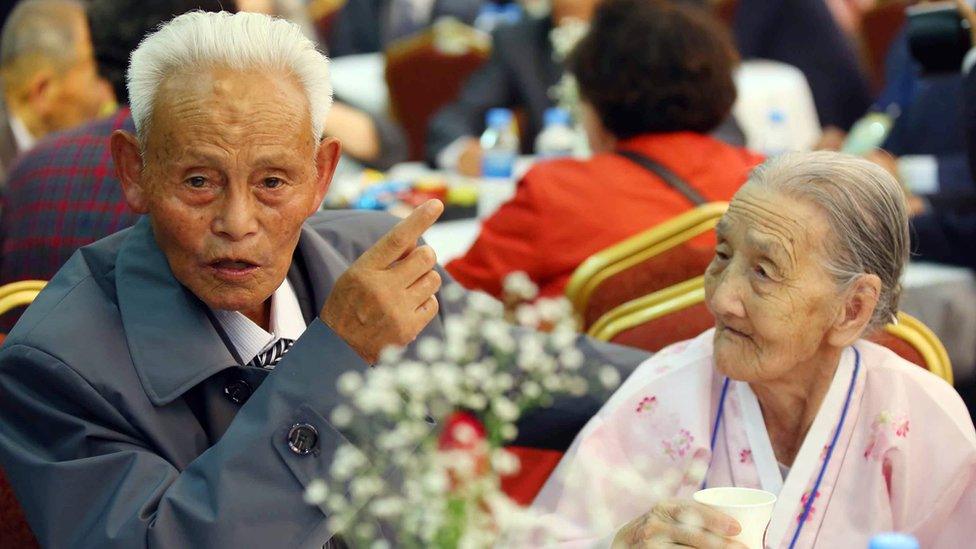
Reunions have been held sporadically since 1988, the last one was in February 2014
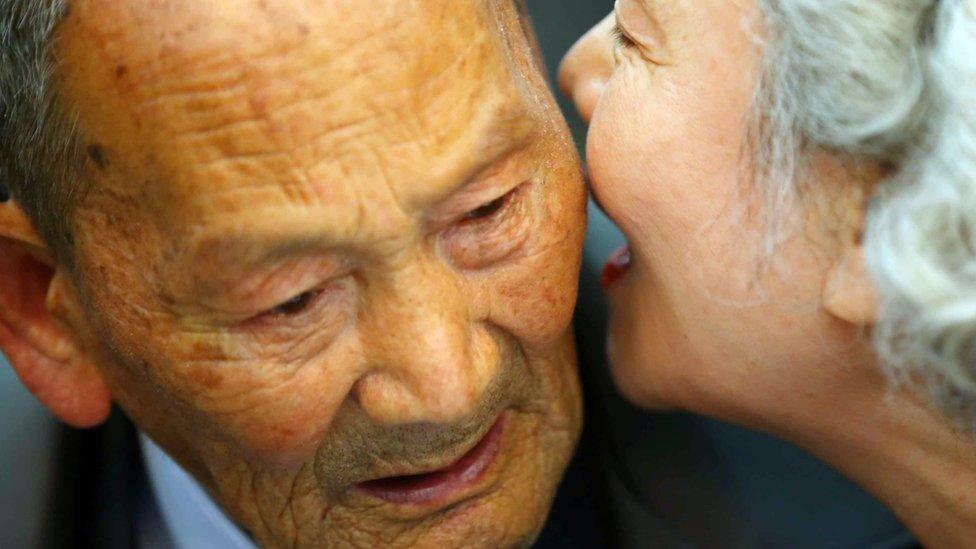
Relatively few people are chosen to attend the reunions
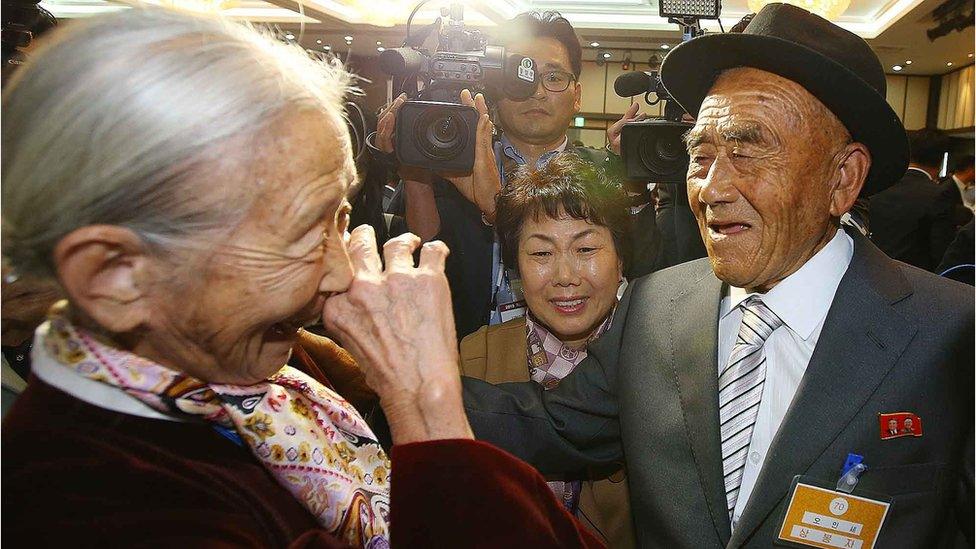
The lucky few are picked at random by a computer which considers age and family background.
The first group of about 400 South Koreans, comprising of chosen participants and their accompanying family members, are taking part in the first round of meetings running from Tuesday to Thursday, reported Yonhap news agency.
Another 250 will attend the second round of meetings from Saturday to next Monday. Each round comprises of six two-hour sessions.
Many of those attending from South Korea are bringing gifts for their North Korean relatives such as clothes, food, toothpaste, and cash.
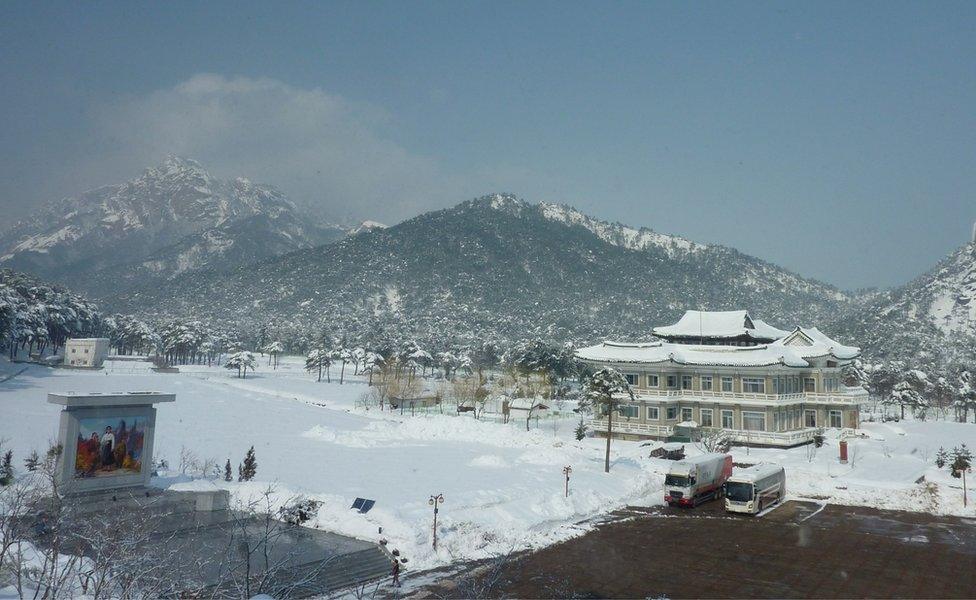
The reunions are taking place at a resort on Mount Kumgang in North Korea
The two Korea remain technically at war as the Korean War only ended in an armistice.
The family reunions began in 2000 and have since been carried out sporadically.
But they depend hugely on the state of relations, and the North is known to have cancelled a few at moments of tension. The last was held in February 2014.
- Published19 October 2015
